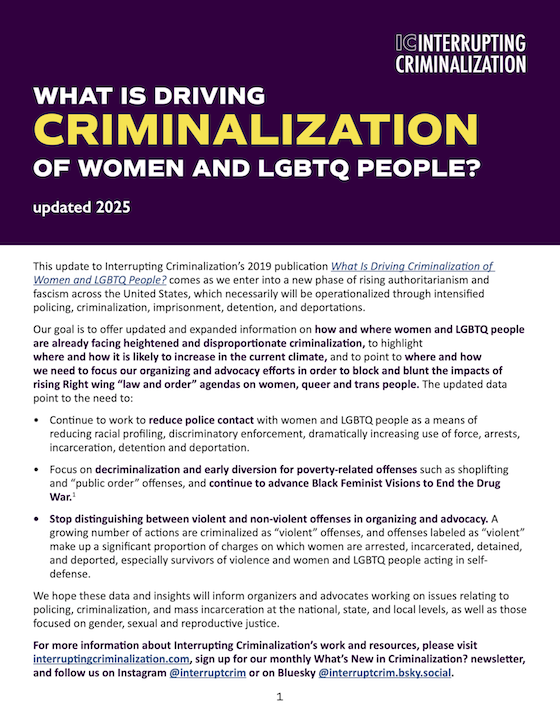All Resources
A collaborative resource on harm reduction and navigating risk in mandated reporting. This tool outlines some of the most common questions practitioners and community-based groups encounter when navigating the realities of mandated reporting.
In this zine and audio story, a patient advocate who was central to passing the Reproductive Health Act (RHA) discusses the limits of legislative interventions in securing access to abortion care, and the importance of challenging criminalization at any stage of pregnancy. This story is part of the Beyond Do No Harm’s Storytelling Media Project.
In this zine and audio story, a medical student in California prevents security from being called on a patient's family member, emphasizing the importance of speaking up and asking questions. This story is part of the Beyond Do No Harm’s Storytelling Media Project.
In this zine and audio story, a primary care physician in New York shares a strategy she uses to advocate for patient care while organizing for housing equity and migrant justice. This story is part of the Beyond Do No Harm’s Storytelling Media Project.
In this zine and audio story, a physician in Georgia utilizes compassionate release as a strategy to advance care for in-custody patients. This story is part of the Beyond Do No Harm’s Storytelling Media Project.
In this zine and audio story, a resident physician in Florida discusses the importance of pushing back against cruel rules and policies in hospitals that impact care for incarcerated patients. This story is part of the Beyond Do No Harm’s Storytelling Media Project.
In this zine and audio story, an advocate and an attorney share an intimate story about the power of community and policy, and the role of health care providers in the movement to end HIV criminalization. This story is part of the Beyond Do No Harm’s Storytelling Media Project.
In this zine and audio story, a harm reduction nurse in Canada leads his community in a fight against Bill 34, which would re-criminalize public drug use. This story is part of the Beyond Do No Harm’s Storytelling Media Project.
In this zine and audio story, a physician at a community health center challenges the policing of his patients by offering a harm reduction-based approach to care. This story is part of the Beyond Do No Harm’s Storytelling Media Project.
In this zine and audio story, a physician in Massachusetts prevents a patient from being dismissed from his practice by implementing a restorative justice process. This story is part of the Beyond Do No Harm’s Storytelling Media Project.
A mini toolkit to take action to disrupt the ICE kidnapping, detention, and deportation machine. This online resource is an invitation to join efforts already in motion in your area and across the country to protect our community members — or to start your own, or to take action wherever and however you can.
A resource for people interested in and working to develop abolitionist crisis response rooted in transformative justice. This offering aims to help demystify a few things about how we develop, think about, and create these organizations and formations, and how we sustain them.
An online toolkit for journalists, communicators, and organizers responding to law enforcement disinformation. This virtual resource accompanies and expands on our “Don’t Be A Copagandist” series by providing tools for shifting coverage to counter copaganda.
Size 12x18” museum-quality poster made on thick matte paper. This poster, modeled after workplace safety posters that give advice on how to clean up vomit and other hazards, sums up ten key ways journalists and media makers can cut through authoritarian and pro-police propaganda.
A “back to school” reading guide and resource list for people interested in learning more and supporting abolitionist health care workers and providers who are fighting criminalization of care.
Informational power establishes sustained, proactive community control over the facts and information that we need in order to struggle and survive, and that inform how we make sense of the world together, and the actions we take to shape our futures. Shaping Reality: Building Informational Power to Resist Authoritarianism lays out an essential framework and guiding questions for building community-controlled informational infrastructure.
A zine on protest, power, and “violence” in social movements, adapted directly from Chapter 6 of the book Let This Radicalize You: Organizing and the Revolution of Reciprocal Care by Kelly Hayes and Mariame Kaba.
A checklist and resource for people concerned about digital security and doxxing, whether you are a journalist or someone whose name or face appears in media or social media. There are steps that you can take to clean up your digital presence so that it’s more difficult for people to hack your accounts or track down information about you. Available in Spanish.
A zine by Mariame Kaba that goes over some historical background about U.S. police and their use of tear gas, along with archival photos and documents from Kaba’s collection.
Inspired by “Block & Build” sheets circulating, Interrupting Criminalization offers an abolitionist take on strategic frameworks for fighting Right-wing, authoritarian, and fascist agendas and regimes.
Prisons Must Fall is a powerful children’s book showing the harm that prisons cause and exploring abolitionist solutions, such as meeting people's basic needs, restorative justice, and community support—seeds for a safe world.
A resource for media and organizers aimed at transforming the narrative about migration. Like our other “Don’t Be A Copagandist” guides, this resource is helpful for anyone to read and take note of, regardless of profession.
Most often, attacks on libraries focus on books—various interest groups have tried to remove a wide range of books from library shelves. Sometimes, though, librarians who take the egalitarian mission of the library seriously have also become targets of their communities or of the state.
Read, print, and share Interrupting Criminalization’s new zine. Readers will learn about the history of police in libraries, tales of librarians who have been targeted by law enforcement and those that have resisted policing the stacks. With books, libraries, and library patrons under threat, explore histories of resistance to policing inside libraries and the calls to action going out today.
A report by the National Black Women’s Justice Institute and Interrupting Criminalization that examines diversion programs from the perspective of the people they impact the most — participants themselves — and offers recommendations for program evaluation and creation of community-based programs that genuinely divert people from the criminal punishment system toward sustainable well-being.
This update to Interrupting Criminalization’s 2019 publication What Is Driving Criminalization of Women and LGBTQ People? comes as we enter into a new phase of rising authoritarianism and fascism across the United States, which necessarily will be operationalized through intensified policing, criminalization, imprisonment, detention, and deportations.
As we mobilize to stop ongoing genocides in Gaza, the West Bank, the Sudan and beyond, as well as corporate and state-sponsored violence in the Democratic Republic of Congo, and navigate increasingly dire conditions on every front in the U.S. and at the border, we hope that these curricula can be helpful in creating a roadmap and container for individuals and groups to really dig into the wealth of toolkits, reports, and resources for organizers we’ve created over the past 5 years.
A report sharing learnings from a virtual transnational transnational conference for transformative justice, restorative justice, and community accountability practitioners that took place in May 2023. The report includes case studies from Kurdistan, India, the Philippines, and Argentina, and looks at the different languages and lineages people draw on in each of these places to root transformative justice practices in their local soil.
A toolkit offering resources, responses, and questions to consider in building robust community ecosystems of collective care at the neighborhood and city-wide levels. Based on Interrupting Criminalization’s work and practice spaces, and aimed at helping communities seeking to strengthen networks of community care and advance transformative justice.
A report summarizing the impacts of the global drug war on Black women, girls, and trans and gender nonconforming people, as well as the Black feminist visions, analysis, and needs articulated during the Building Black Feminist Visions to End the Drug War convening hosted by Interrupting Criminalization, the Drug Policy Alliance, and In Our Names Network in June 2023.

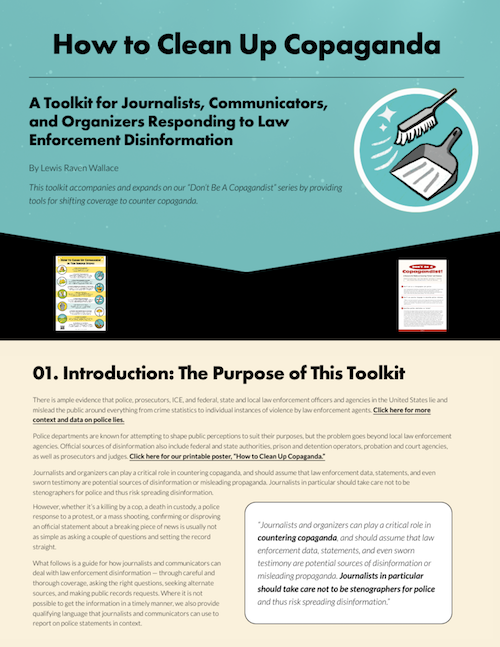
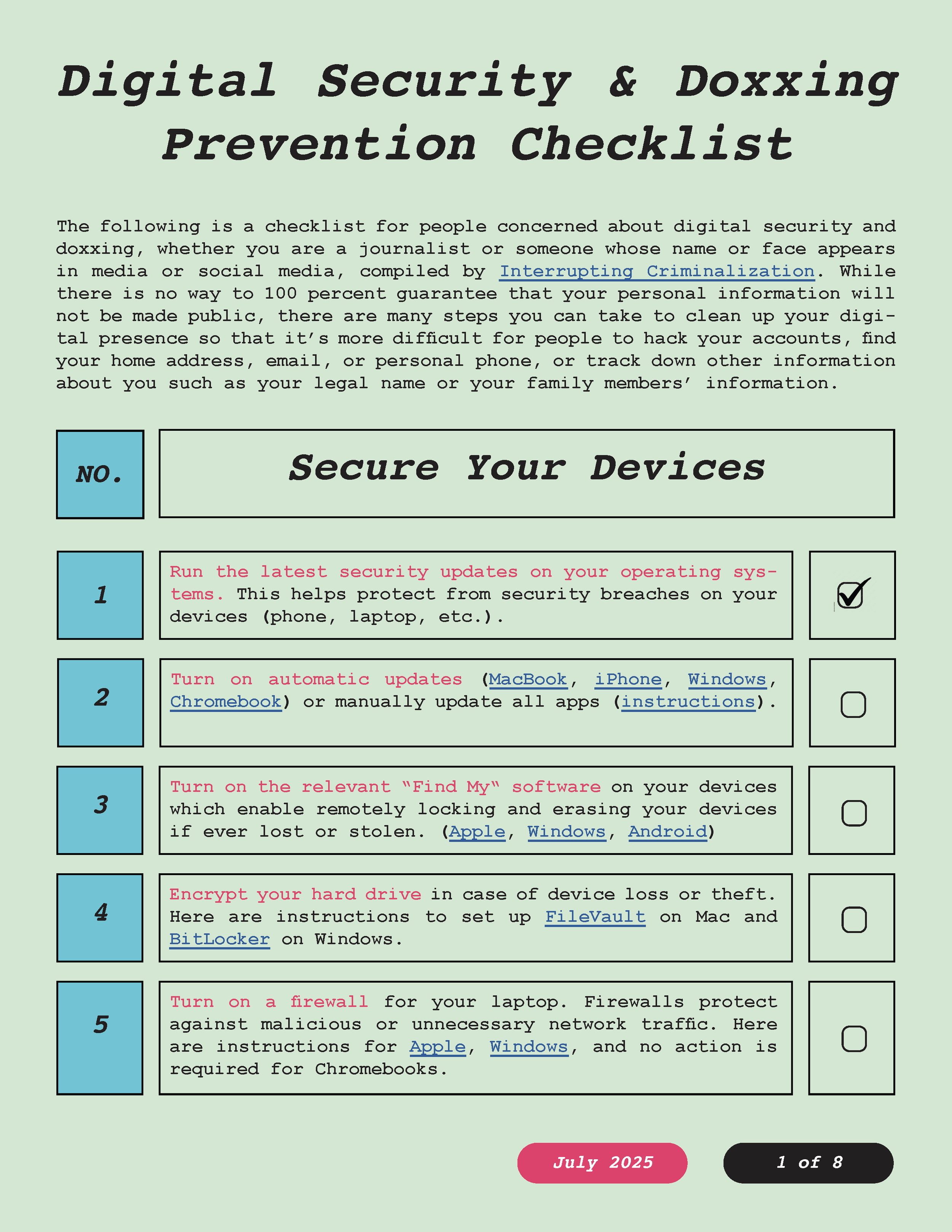

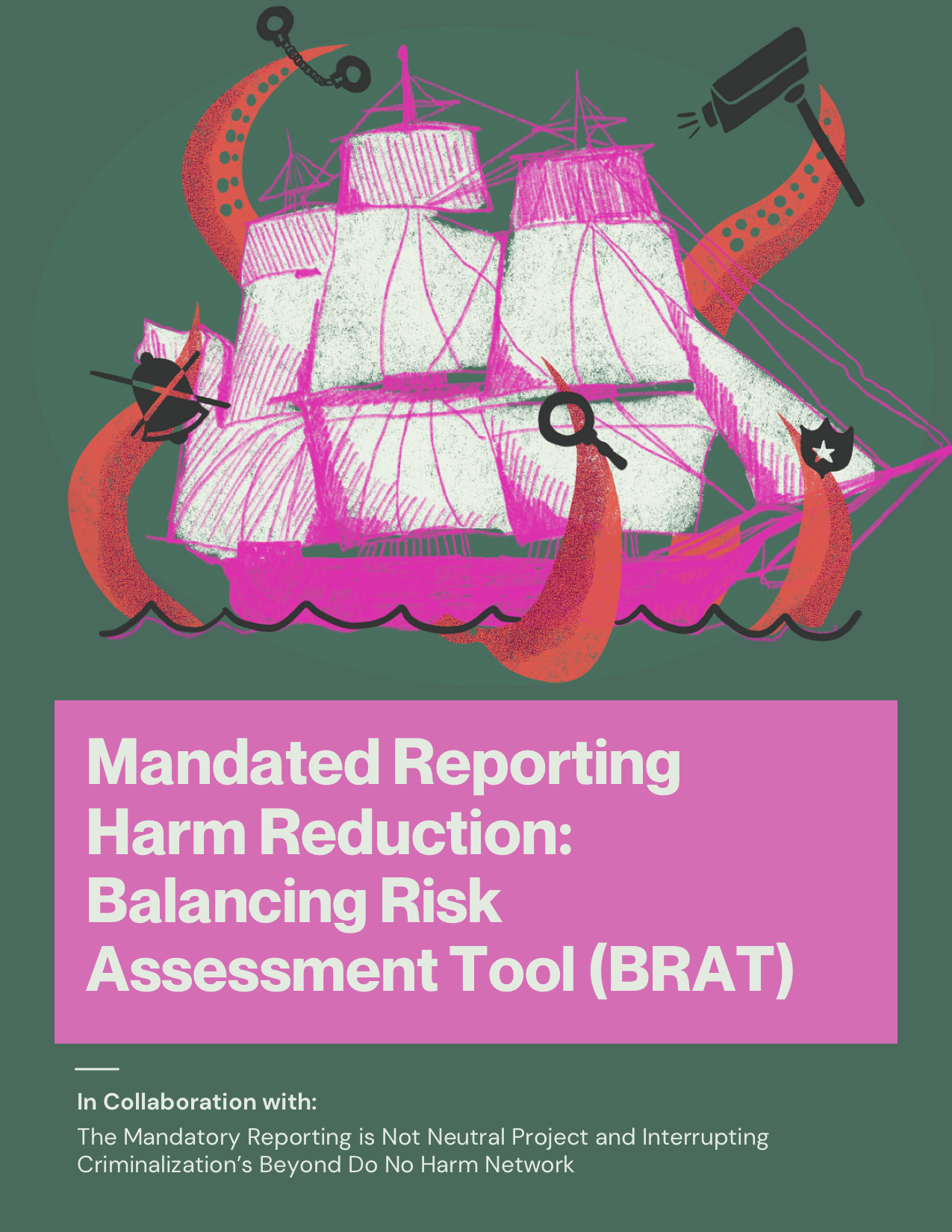

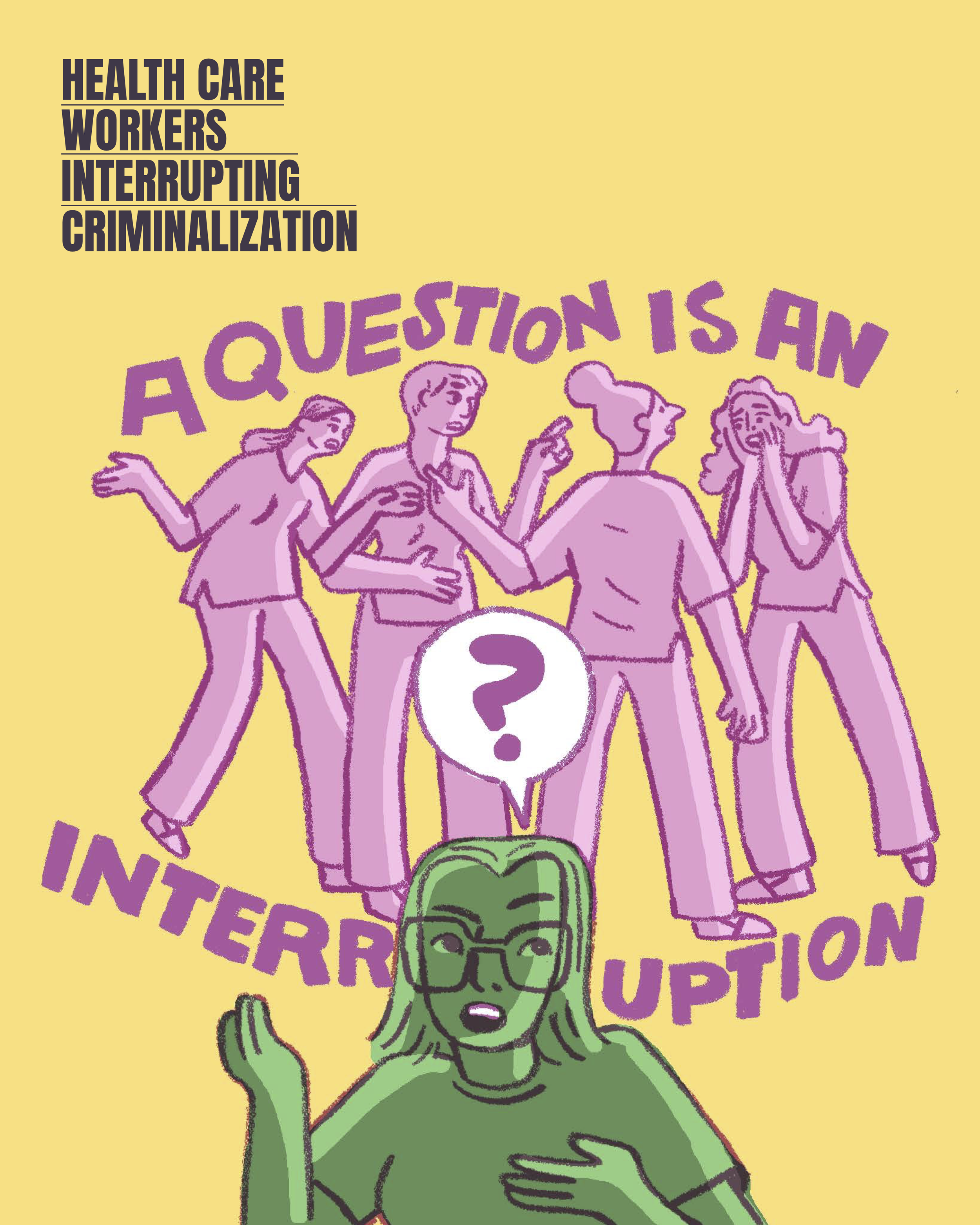

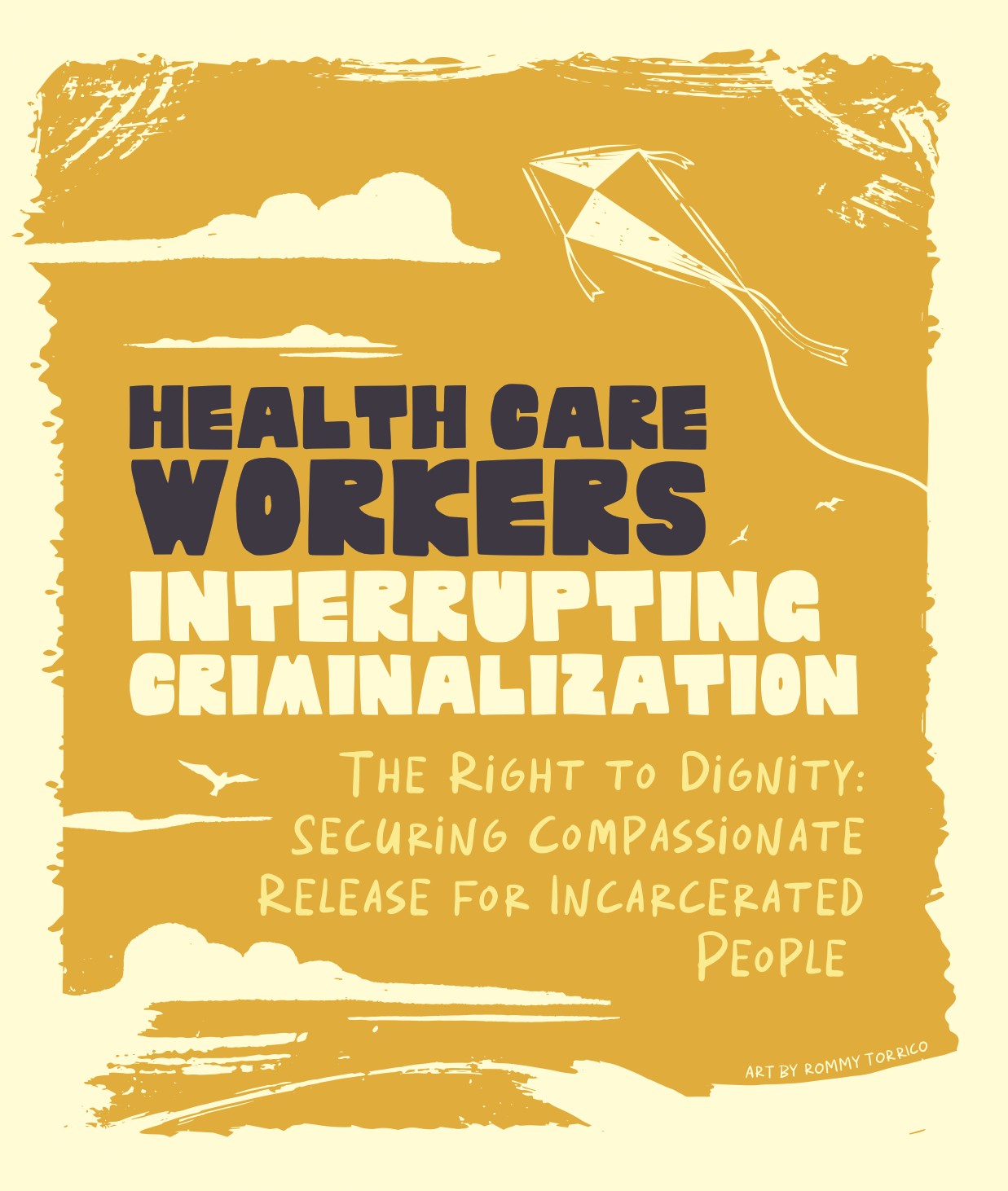
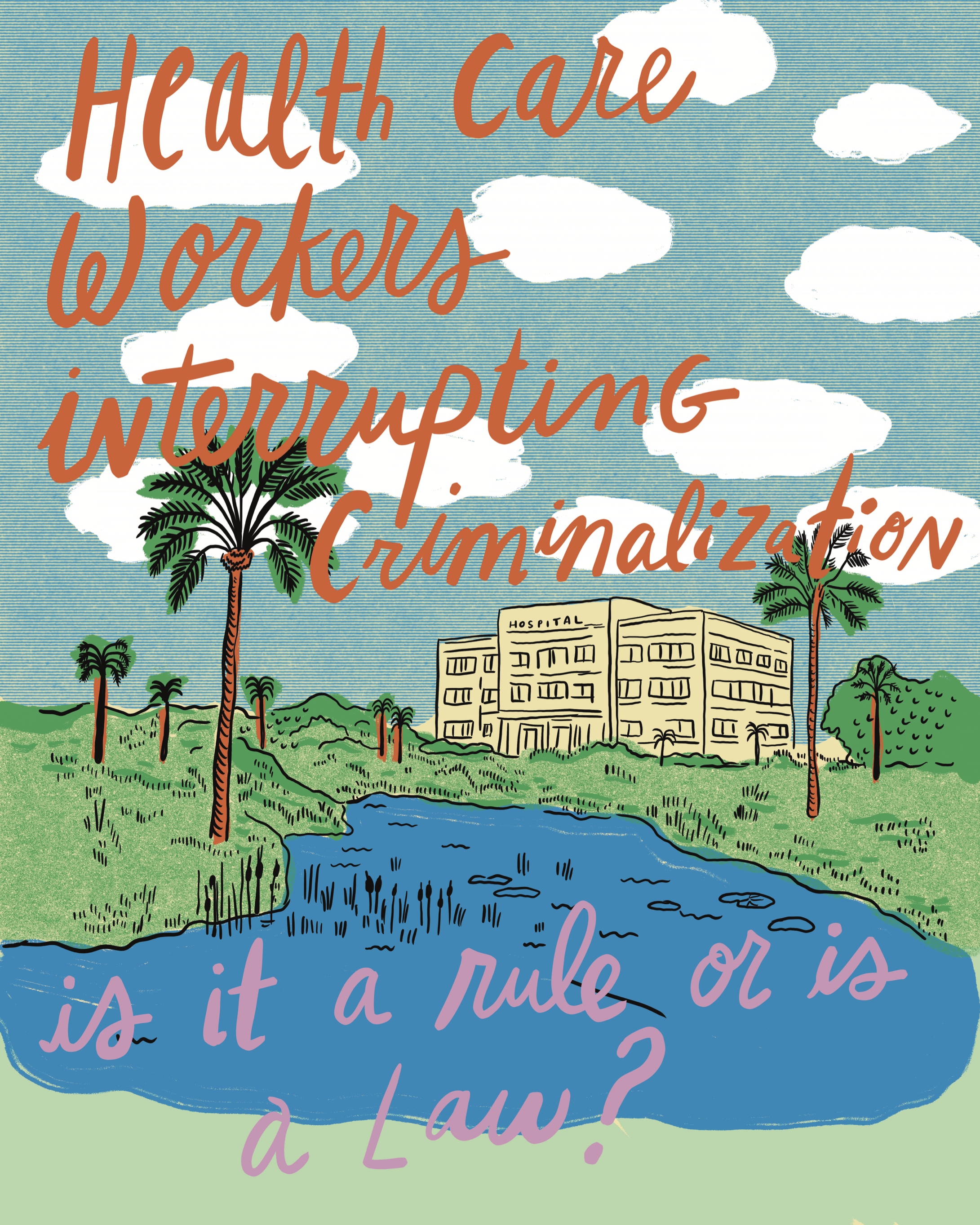





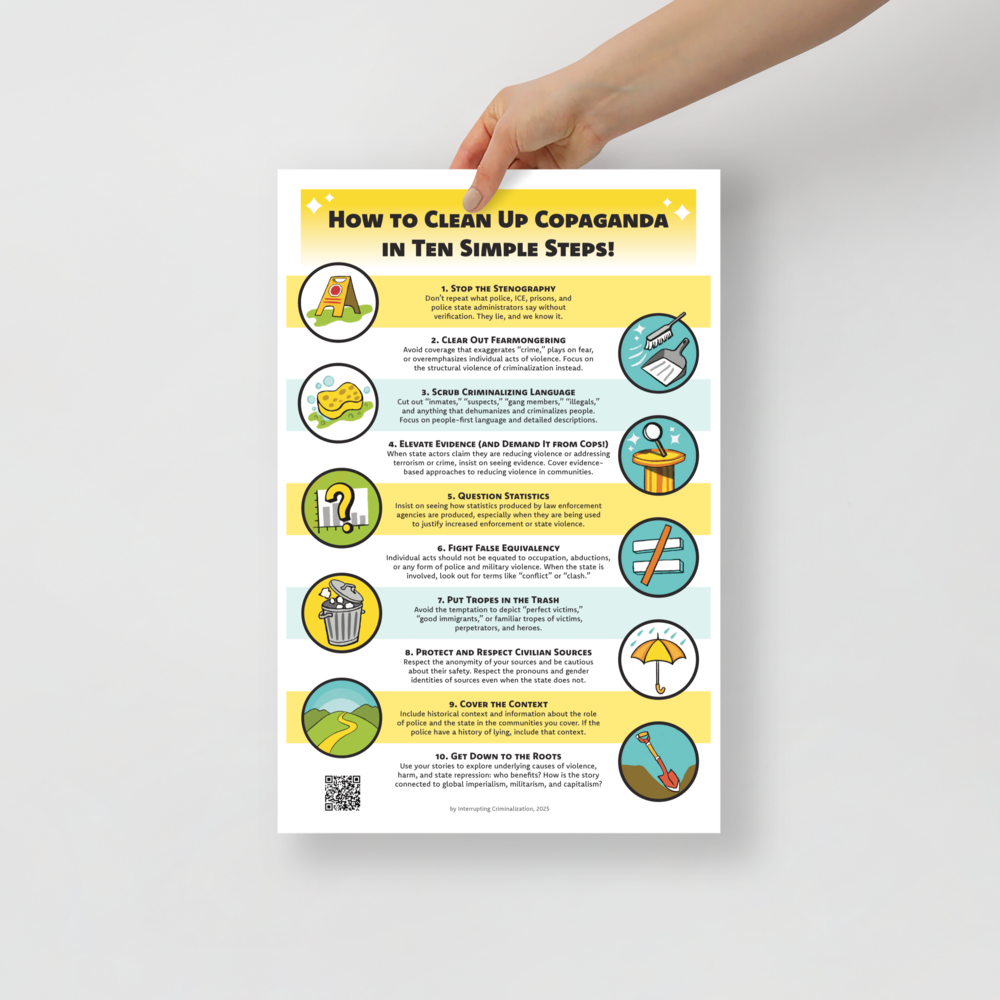



![A [short] History of U.S. Police & Tear Gas](https://images.squarespace-cdn.com/content/v1/5ee39ec764dbd7179cf1243c/1750100976099-SV0HTNPGKTRTKN11U0BU/A+Short+History+of+U.S.+Police+and+Tear+Gas+-+cover.png)





